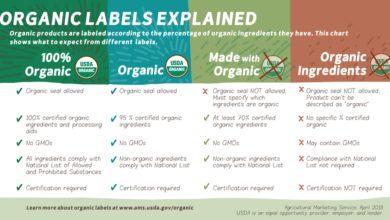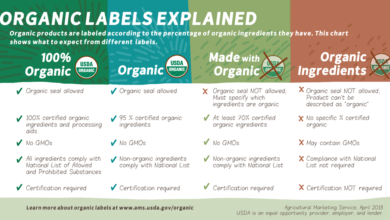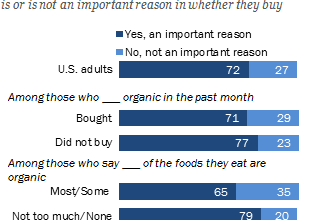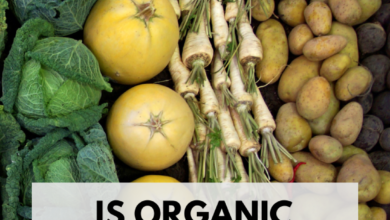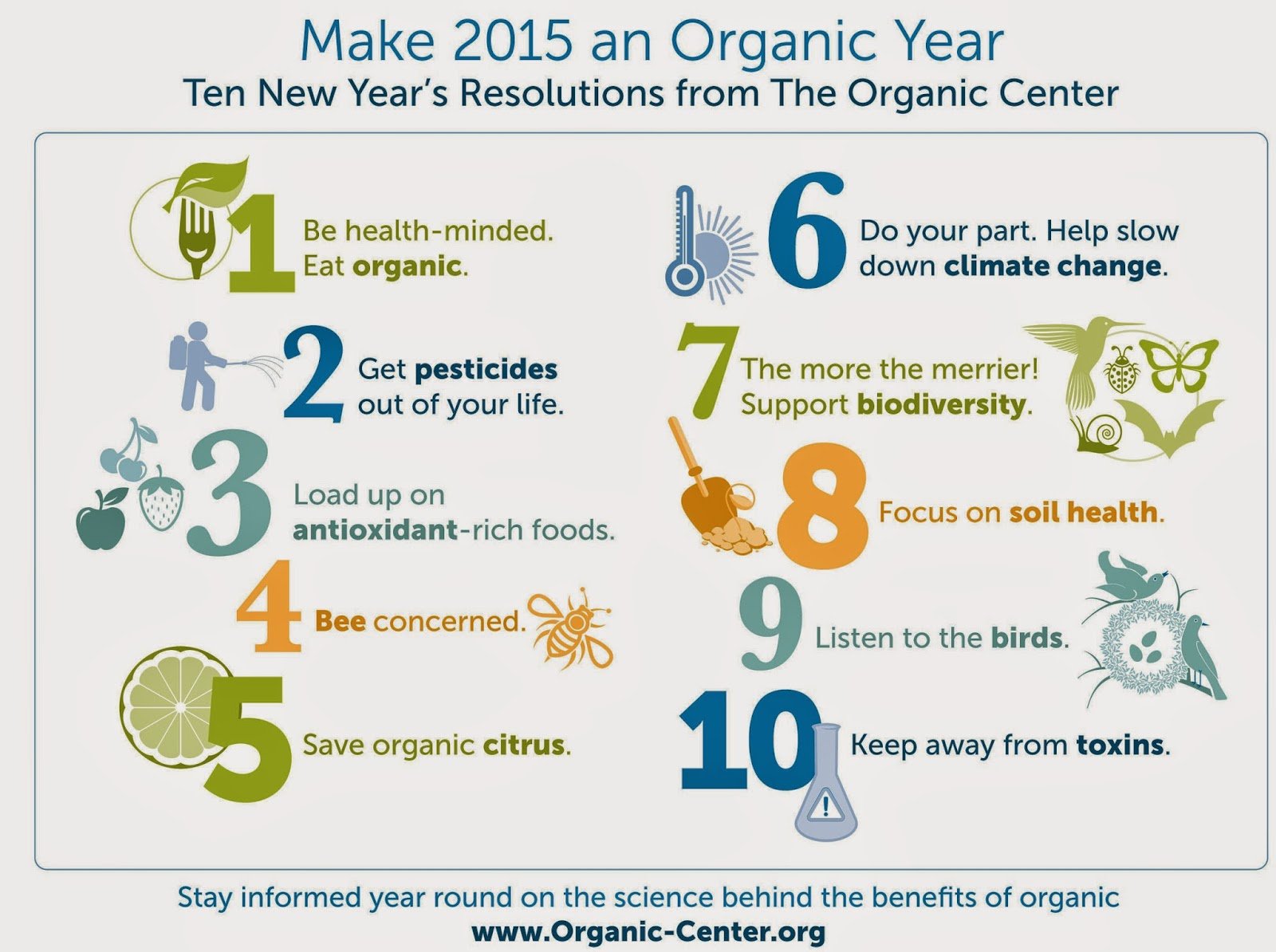
Benefits of Organic Food for Human Health
Eating organic food offers many health benefits. It’s a choice that impacts well-being positively.
Organic foods are grown without synthetic chemicals. They are free from artificial pesticides and fertilizers. This makes them a cleaner option for your diet. People often choose organic foods for their purity and nutrition. These foods are less likely to contain harmful substances.
They also often taste better and are fresher. Switching to organic food can improve your health in many ways. It supports the body’s natural functions and boosts immunity. Consuming organic products may reduce the risk of certain diseases. They are rich in essential nutrients, which can enhance overall health. As more people become health-conscious, the demand for organic products is rising. Understanding the benefits of organic food can help you make informed dietary choices. It may lead you to enjoy a healthier and more balanced life.
Nutritional Advantages
Organic food is often praised for its health benefits, and one of the most compelling reasons to choose organic is the nutritional advantages it offers. While many focus on the absence of harmful pesticides and chemicals, the nutritional profile of organic food deserves attention. It’s not just about eating clean; it’s about eating smarter, with each bite offering more than just sustenance.
Higher Antioxidant Levels
Organic foods tend to have higher levels of antioxidants compared to their conventional counterparts. Antioxidants play a crucial role in protecting your cells from damage caused by free radicals. When you consume organic fruits and vegetables, you’re essentially boosting your body’s defense system.
Think about your last meal; was it colorful with a variety of veggies? Those vibrant colors often signal a rich antioxidant presence. Next time you’re at the grocery store, consider picking organic options for an antioxidant-rich diet. Your body will thank you with improved health and vitality.
Essential Vitamins And Minerals
Organic produce is often richer in essential vitamins and minerals. This means you’re getting more nutrients per bite, which can lead to better overall health. Picture your breakfast plate filled with organic spinach and eggs, brimming with vitamins and minerals to kickstart your day.
Have you noticed how organic produce tends to taste better? That’s not just a coincidence. The nutrient density doesn’t just benefit your health; it enhances flavor too. Imagine the satisfaction of knowing that every bite contributes positively to your wellbeing.
Choosing organic food is a practical way to ensure you’re not just eating for energy but also for nutrition. Next time you shop, ask yourself: is the food I’m buying truly nourishing my body? Making mindful choices can lead to a healthier, more vibrant life.
Chemical-free Consumption
Embracing organic food offers a path to chemical-free consumption. This journey helps reduce exposure to harmful substances. Organic farming avoids synthetic chemicals, making it a healthier choice. By choosing organic, people enjoy cleaner food options. This choice benefits both personal health and the environment.
Pesticide-free Produce
Organic produce comes without synthetic pesticides. Conventional farming uses chemicals to protect crops. These chemicals can remain on fruits and vegetables. Eating organic means fewer pesticide residues in the diet. This reduces potential health risks. It also supports cleaner farming practices.
Hormone-free Meat And Dairy
Organic meat and dairy are free from artificial hormones. Conventional livestock often receive growth hormones. These hormones can enter the human body through consumption. Choosing organic avoids this risk. It ensures meat and dairy are natural and safe. Organic livestock farming focuses on animal welfare and health.
Impact On Immune System
Organic food has gained popularity for its many health benefits. One significant advantage is its impact on the immune system. Eating organic food can bolster the body’s defenses, providing better protection against illnesses and diseases. This section explores how organic food influences immunity, focusing on strengthening immunity and reducing allergies.
Strengthening Immunity
Organic food is rich in essential nutrients. These nutrients play a crucial role in immune function. Vitamins and minerals found in organic produce help maintain a healthy immune system. They provide the body with the tools it needs to fight off pathogens. Organic food is free from synthetic chemicals. These chemicals can weaken the immune system. Eating clean foods supports overall health and resilience.
Reducing Allergies
Many people suffer from allergies. Organic food can help reduce these reactions. It is free from artificial additives that can trigger allergies. Consuming organic products means fewer chances of exposure to allergens. Organic food also contains fewer pesticides. Pesticides can cause allergic reactions. By choosing organic, individuals may find relief from allergy symptoms.

Credit: www.researchgate.net
Digestive Health Benefits
Organic foods support digestive health by reducing exposure to harmful chemicals. They contain more nutrients and beneficial bacteria. This can enhance gut flora and improve digestion. Eating organic helps maintain a healthy digestive system naturally.
Organic food is gaining popularity, and one of the compelling reasons is its impact on digestive health. Eating organic isn’t just about avoiding pesticides; it’s about nourishing your body in a way that supports and enhances your digestive system. Let’s dive into how organic food can make a difference in your gut and overall digestive health.Gut Microbiome Support
Organic foods can play a crucial role in supporting a healthy gut microbiome. These foods are typically free from synthetic pesticides and fertilizers, which can affect the balance of bacteria in your gut. A healthy gut microbiome is essential for breaking down food, absorbing nutrients, and keeping harmful bacteria at bay. Have you ever noticed how your stomach feels after eating fresh, organic fruits and veggies? This isn’t just your imagination. The absence of chemicals means less stress on your gut, allowing beneficial bacteria to thrive.Fiber-rich Foods
Organic foods often come packed with fiber, which is vital for your digestive health. Whole grains, fruits, and vegetables are excellent sources of dietary fiber, helping to regulate bowel movements and prevent constipation. Including these fiber-rich foods in your diet can keep your digestive system running smoothly. Imagine enjoying a crisp organic apple or a vibrant salad filled with greens. These choices not only taste better but also provide the fiber your body needs to maintain a healthy digestive tract. When you choose organic, you’re opting for foods that naturally contain more fiber. This can be especially beneficial if you struggle with digestive issues like bloating or irregularity. Could adding more organic fiber-rich foods to your meals be the key to better digestion? Incorporating organic food into your diet doesn’t have to be overwhelming. Start small, maybe with just one organic meal a week. Notice how your body responds, and see if your digestion improves. Eating organic is not merely a trend; it’s a proactive step towards better digestive health. By making conscious choices, you can support your gut and enjoy the benefits of a healthier, happier digestive system.Heart Health Improvement
Organic food holds a special place in promoting heart health. Many people are turning to organic options to boost their wellness. Heart health improvement is one of the key benefits of consuming organic food. This focus on natural ingredients helps maintain cardiovascular health.
Lowering Heart Disease Risk
Organic food can lower the risk of heart disease. It is often free from harmful chemicals. These chemicals can damage heart tissues over time. Organic produce contains antioxidants. These compounds fight free radicals in the body. Free radicals contribute to heart disease. Eating organic foods regularly keeps heart disease at bay.
Balancing Cholesterol Levels
Cholesterol balance is crucial for a healthy heart. Organic food helps maintain good cholesterol levels. It reduces bad cholesterol levels. This balance prevents plaque buildup in arteries. Clean arteries ensure smooth blood flow. Organic fruits and vegetables are rich in fiber. Fiber aids in managing cholesterol levels. This keeps the heart functioning well.

Credit: www.organic-center.org
Weight Management
Organic food plays a crucial role in managing weight. Many people find it easier to maintain a healthy weight by choosing organic options. These foods often contain fewer artificial ingredients and preservatives. This can lead to better health outcomes. Let’s explore how organic food helps with weight management.
Reducing Obesity Risks
Eating organic can reduce obesity risks. Organic foods are often lower in unhealthy fats and sugars. They provide essential nutrients without extra calories. This balance helps keep weight in check. Fewer calories mean less chance of gaining extra pounds.
Organic produce is also free from harmful chemicals. These chemicals can affect metabolism and weight gain. By choosing organic, you reduce exposure to these risks. This choice supports a healthier body weight.
Promoting Healthy Eating Habits
Organic food encourages healthy eating habits. It often includes more fruits, vegetables, and whole grains. These are vital for a balanced diet. Eating more of these foods can help control weight. They are rich in fiber and nutrients but low in calories.
Choosing organic teaches better food choices. It leads to mindful eating. This habit helps you listen to your body’s hunger signals. Over time, it can lead to long-term weight management. Organic food supports a healthier lifestyle.
Mental Well-being
When you think of organic food, mental well-being might not be the first benefit that comes to mind. However, the quality of the food you eat can significantly impact your mind. Organic foods, free from synthetic pesticides and chemicals, can play a crucial role in boosting your mental health.
Enhancing Mood
Ever noticed how you feel after eating a fresh salad or a juicy apple? Eating organic foods can uplift your mood. These foods are rich in essential nutrients like omega-3 fatty acids and antioxidants, which are known to support brain health.
Consider swapping your regular snacks for organic options. You might find yourself feeling more cheerful and energetic. Could the food you eat be the secret to a happier day?
Reducing Stress Levels
Stress can creep up on you, affecting your work and personal life. Organic foods, especially those high in magnesium, can help reduce stress levels. Magnesium, found in foods like spinach and almonds, supports nerve function and helps calm your mind.
Switching to organic can also mean fewer pesticide residues, which are known to affect stress hormones. Wouldn’t you prefer a natural way to ease your mind?
Imagine coming home after a long day and enjoying a meal that not only fills your stomach but also calms your nerves. Organic foods offer that comforting benefit. Why not give it a try and see the difference it makes in your stress levels?

Credit: www.runstreet.com
Environmental Impact
When you choose organic food, you’re not just making a healthy choice for yourself—you’re also supporting a healthier planet. Organic farming practices have a significant impact on the environment, offering sustainable solutions to many of the problems caused by conventional agriculture. Let’s explore how these practices contribute to a cleaner, greener world.
Sustainable Farming Practices
Organic farms prioritize methods that protect the earth. They use crop rotation, which keeps the soil healthy and reduces the need for chemical fertilizers. Have you ever considered how your food choices affect the land? By choosing organic, you support farmers who nurture the soil, ensuring it remains productive for future generations.
Organic farming also encourages biodiversity. Farmers plant a variety of crops, creating habitats for wildlife. This diversity not only supports ecosystems but also helps control pests naturally. Next time you bite into an organic apple, think about the network of life you’re supporting with your choice.
Reducing Pollution
Organic farming reduces pollution by cutting down on the use of synthetic pesticides and fertilizers. These chemicals can contaminate water sources and harm aquatic life. Imagine a world where rivers run clear, and fish thrive—organic practices bring us closer to that vision.
Choosing organic food helps decrease air pollution too. Organic farms minimize fossil fuel use by relying on natural pest control methods. How many times have you wondered about the air quality in your area? Supporting organic agriculture is a step towards cleaner air.
Every time you opt for organic food, you’re casting a vote for a healthier planet. What changes can you make today to contribute to sustainable practices and pollution reduction? Your choices matter more than you might think.
Frequently Asked Questions
What Are The Benefits Of Organic Food For Human Health?
Organic food benefits health by reducing exposure to pesticides and chemicals. It often contains higher nutrients. Eating organic supports better heart health and boosts the immune system. It promotes environmentally friendly farming practices, which can improve overall well-being. Organic options may also help reduce antibiotic resistance.
What Happens To Your Body If You Only Eat Organic Food?
Eating organic food can reduce exposure to pesticides and chemicals. It may improve digestion and support overall health. Organic foods are often fresher, potentially enhancing nutrient intake. Choosing organic supports sustainable farming practices, benefiting the environment. Always maintain a balanced diet for optimal health benefits.
Is Organic Food Actually Healthier?
Organic food can be healthier due to fewer pesticides and additives. It often contains higher antioxidants and nutrients. Some studies suggest improved heart health and reduced cancer risk. Always balance with a varied diet for optimal health benefits.
What Are The Advantages And Disadvantages Of Organic Foods?
Organic foods offer benefits like fewer pesticides, better taste, and more nutrients. They support sustainable farming and reduce environmental impact. Disadvantages include higher costs and shorter shelf life. Availability might be limited in some areas.
Conclusion
Organic food offers many health benefits. It reduces exposure to harmful chemicals. Nutrient levels in organic produce are often higher. Antioxidants in organic foods promote better health. Fewer pesticides mean fewer toxins in your body. Organic farming supports a healthier planet too.
Choosing organic can improve overall well-being. It also encourages sustainable agricultural practices. Eating organic is a smart choice for health-conscious individuals. It can lead to a healthier lifestyle. Consider organic options for your next meal. Your body will thank you.
Enjoy the natural taste and peace of mind.



